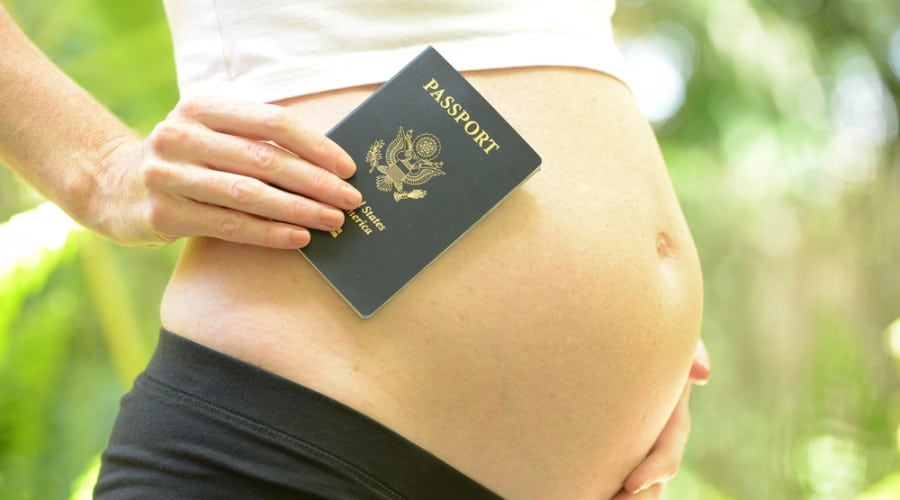TRAVELING WHILE BEING PREGNANT
Pregnant women must be careful when it comes to traveling. This may be strongly discouraged for them, especially if the destination is distant or affected by infectious diseases. This is especially important for the women experiencing a high-risk pregnancy (if they expect twins for example). The pregnant women who can not avoid traveling must see an obstetrician-gynecologist before their departure, and take some precautions to avoid serious medical issues during their trip.
THE RISKS ACCORDING TO THE TRIMESTER OF PREGNANCY
Though it may be dangerous for a pregnant woman to travel at any time, the nature and the severity of the risks involved depend on the stage of pregnancy. The second trimester is the safest period to travel, as most of the obstetric emergencies usually occur during the first and the last three months of pregnancy. If traveling during the first trimester, a pregnant woman can be victim of miscarriage, while during the third trimester, she faces a risk of premature birth.
WHAT ABOUT THE DIFFERENT MODES OF TRANSPORTATION ?
When traveling, pregnant women face a higher risk of thrombosis. This pathology is caused by the formation of a blood clot, often in the calf. It can lead to pulmonary embolism if the clot migrates and blocks an artery irrigating the lungs, which may be fatal. The thromboembolic risk significantly increases if pregnant women travel for a long time without being able to move freely. Consequently, they should be careful about the mode of transportation they choose. As they must avoid sitting still for a long period, train is the safest way to travel for pregnant women. Indeed, they can easily and regularly walk along the center aisle. Planes also offer the opportunity to regularly walk around, but airlines usually don’t accept women approaching their third trimester of pregnancy, because of the risk of delivery. Car is not advised for long trips. If they can not avoid traveling by car, pregnant women must stop every hour to take a break and walk for ten minutes.
HOW CAN PREGNANT WOMEN AVOID SERIOUS MEDICAL ISSUES WHILE TRAVELING ?
If possible, pregnant women should avoid traveling. If they have no choice and can not cancel or postpone a long trip, it is essential that they make sure that they are fully covered by a health insurance in their country of destination, and that emergency evacuation and repatriation are included in their contract.
Before their departure, pregnant women must see a doctor, to make sure that they are up-to-date with all their routine vaccinations, and that they don’t need specific travel-related vaccines. They must be aware that vaccines against yellow fever, hepatitis A, typhoid fever and Japanese encephalitis are contraindicated for them.
While traveling, they must take the adequate protection measures. They should always have good hygiene practices and frequently wash their hands with clean water and soap, especially before preparing food and eating or after going to the bathroom. They must remain extremely careful about food safety at any time. They must always eat well-cooked food and avoid unpasteurized dairy products. At last, they ought to protect themselves efficiently against mosquito bites. They should be aware that some insect repellents can be dangerous for pregnant women.
WHAT ARE THE DESTINATIONS WHICH SHOULD BE STRICTLY BANNED DURING PREGNANCY ?
Among the destinations pregnant women should strictly avoid, developing countries can be quoted, as the level of hygiene and the sanitation infrastructure are of poor quality there. Tropical areas must be banned as well, because of the risks of severe infectious diseases (such as malaria, dengue fever, chikungunya and yellow fever). Pregnant women must be aware that these diseases are not only dangerous for themselves, but also for their unborn baby. Moreover, they must avoid going to a country where no adequate emergency obstetrical services are available.

